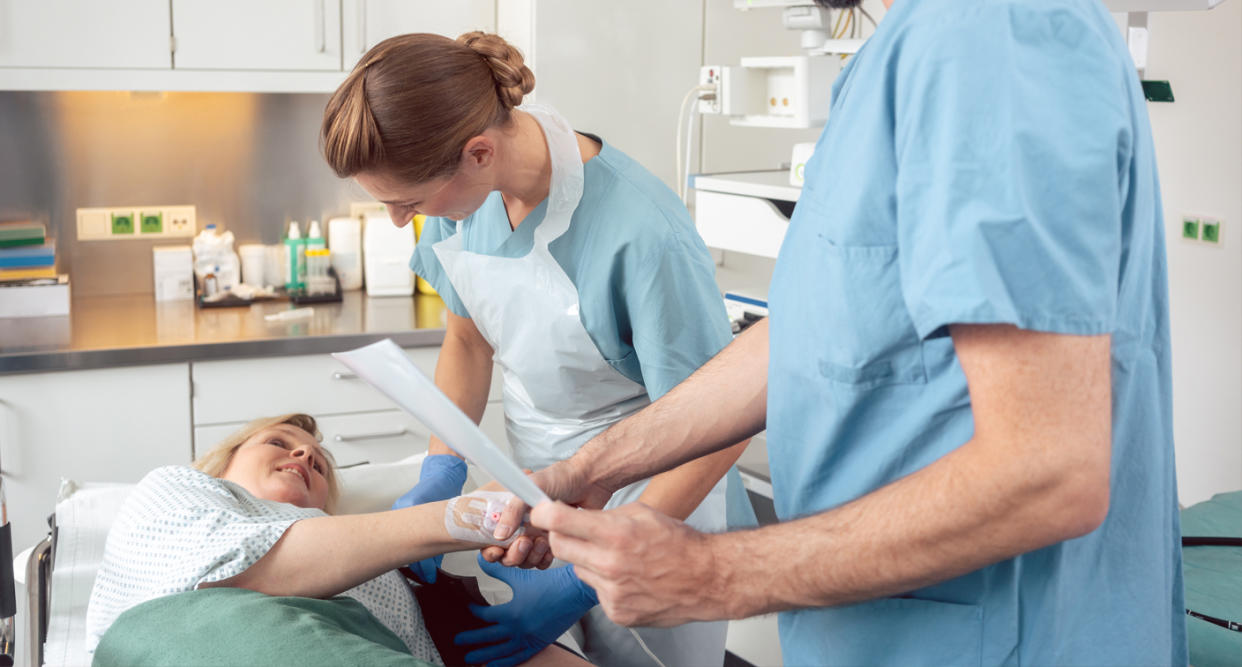Can disposable colonoscopy tools lower infection rates?

After having a colonoscopy — something everyone should do by age 45, or earlier if you have a family history of colon cancer, according to the American Cancer Society — chances are, you want to put the whole procedure behind you (no pun intended).
But in some cases, patients are left dealing with post-procedure infections from bacteria, such as E. coli and Klebsiella. Colonoscopies are performed with a reusable, flexible tool called a colonoscope. After the procedure, the tools go through a rigorous, multi-step cleaning process — called reprocessing — between each use, but some stubborn bacteria can stick around, leading to infection.
Research shows these infections are more common than previously thought. Of the more than 15 million colonoscopies performed every year in the U.S., it was previously believed that the risk of infection was approximately one in a million. However, a 2018 study from Johns Hopkins found infection rates were significantly more common — about one in 1,000 for screening colonoscopies.
So researchers set out to find out whether using disposable scopes during colonoscopies would help lower these infection rates. The new study, published in the journal Gut, found that, essentially, they would. “Disposable colonoscopes may decrease device-related infection transmission and may prove cost-effective for some facilities, particularly those with low-volume and high-infection risk patients,” noted the study authors.
However, that’s not necessarily the case for high-volume facilities that do significantly more colonoscopies. Susan Hutfless, Ph.D., a co-author on the August 2019 study and an assistant professor of medicine at Johns Hopkins School of Medicine, tells Yahoo Lifestyle: “There are fewer infections with higher-volume facilities.”
Here’s why: After colonoscopes are cleaned, water droplets can remain on the scope, which can grow bacteria over time. “It’s only bad if it sits there,” Hutfless explains. But in high-volume facilities, these scopes are being used “again and again” every day, so water doesn’t remain on the scope for long.
There’s also the environmental impact of using disposable scopes. As Hutfless puts it: “15 million procedures a year — that’s a lot of expensive plastic thrown away.”
However, in the future, Hutfless thinks disposable scopes will become more common once they’re widely available, and facilities may eventually let people choose reusable ones for an extra fee.
In the meantime, don’t let any of this scare you off from getting a doctor-recommended colonoscopy. “Your health care provider has determined that the benefit outweighs the risk,” says Hutfless. She adds that if you need to have a colonoscopy — which identifies polyps that, if not removed, could eventually develop into colon cancer — but you’re worried about a potential bacterial infection, “it’s probably worth that risk” to have the colonoscopy.
But if you’re still concerned, Hutfless notes that there are alternatives, including the less invasive fecal occult blood test, which looks at a stool sample to check for blood. However, if you test positive for blood, you’ll likely need to have a colonoscopy. “And you need to know that you are going to do it,” says Hutfless.
Read more from Yahoo Lifestyle:
This cancer is on the rise in young adults — and doctors don’t know why
CDC warns of 'alarming' strain of antibiotic-resistant Salmonella: What you need to know
A new cat allergy vaccine may make sniffling and sneezing a thing of the past
Follow us on Instagram, Facebook and Twitter for nonstop inspiration delivered fresh to your feed, every day.

